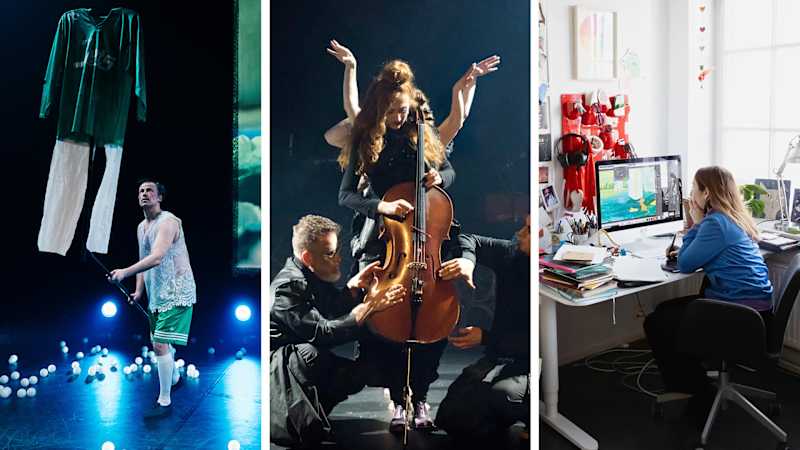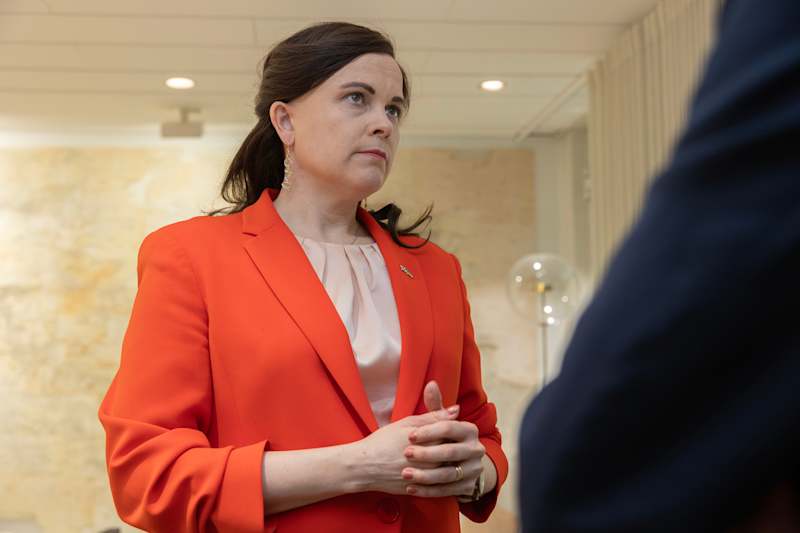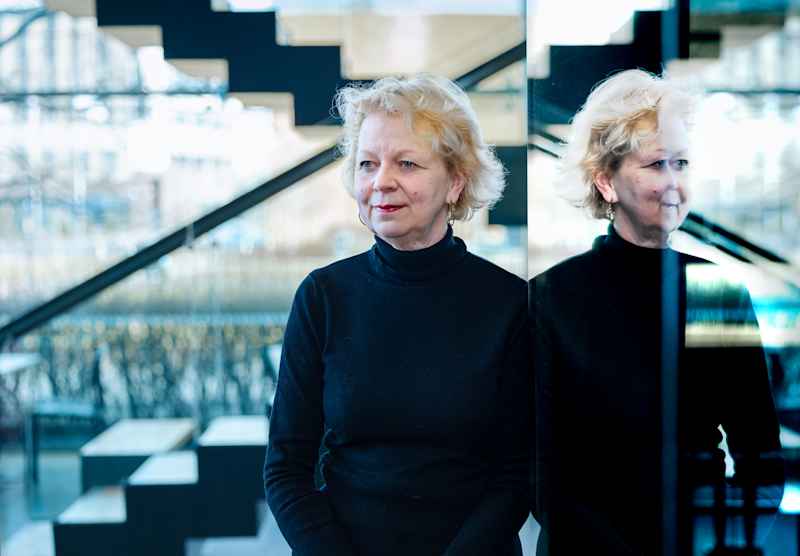Art organisations were dismayed by the draft law, the Ministry amended the proposal – this is how grants will be distributed in the future

The distribution of state artist grants is moving to a new agency. Culture Minister Mari-Leena Talvitie (Coalition Party) assures that artistic freedom will continue to be preserved.
The Ministry of Education and Culture (OKM) is currently finalising a draft law on the new Culture Agency. It is intended to distribute state artist grants in the future. The bill is due to be submitted to Parliament in mid-April, and the new agency should start operating early next year.
The new agency will combine the functions of the Arts Promotion Centre (Taike) and the National Audiovisual Institute (NIA). The latter is known for its extensive film and TV archive, while Taike distributes grants and subsidies to the liberal arts sector.
The liberal arts sector refers to organisations and creators of art and culture that do not have access to state funding protected by law.
The draft law received a dismayed reception in the winter, as many art organizations were afraid that freedom of art would endanger the new agency.
Forum Artis is a cooperation organization for domestic artist organizations.
Peer review, in turn, refers to a process in which grant applications are evaluated by distinguished artists or art experts. In this way, \”power\” is maintained by artists, and decisions on scholarships are not guided by, for example, political grounds.

The government would appoint the grant awarding authority
– The freedom of art is unequivocally recorded in the government’s proposal. The Constitution says that the freedom of science, art and teaching must be guaranteed, the minister says.
The draft law on the new agency also raised concern about the increase in political guidance. Taike’s grant decisions have so far been based on peer review, but the new agency would be decided by the Council of Art and Culture.
In the draft law, its members would have been appointed by the Ministry of Education and Culture. The Council would be assisted by an expert panel, whose members would be compiled into an expert bank.
\”It is susceptible to the fact that if there is a very authoritarian minister of authority in Finland who wants to appoint people to the Arts Council, these people can continue on the same line, making it easier to guide art,\” says Secretary General Kosonen from Forum Artis.
Kosonen’s concern seems useless, as Minister Talvitie says the members of the new Arts and Cultural Council are appointed by the Government, the Finnish Government instead of OKM.
– There will be a change in the draft law in this respect. The Government appoints the Council of Art and Culture, says Talvitie
According to Talvitie, the appointments of the members of the Council are intended to hear the field of art and culture.
– There is a wide range of actors in the field in the same way as everything else.

Peer review remains
In the field of art, it has been feared that an expert bank planned for the new Cultural Agency will not fulfill the same task as the state art councils that have made Taike’s grant decisions.
According to the Minister of Culture Talvitie, peer review is to be retained in the decision -making of grants.
– Peer review is to be preserved in the same way as it is now. The decisions of the Council of Arts and Culture would be based on peer review and the work of the expert bank.
The current state art committees are expected to be abolished with the new cultural office.
The Center for Art Promotion under the OKM is an important fund and culture financier, and most of the beneficiaries are freelancers. Taike distributed nearly EUR 50 million to the free field of art in 2023. The pot is now lower than as a result of cuts to state culture.
Competition for scholarships is tough.
Taike received more than 16,000 applications in 2023, and about 15 percent went through. Fine arts, theater art, music, literature and dance art were the most money.
